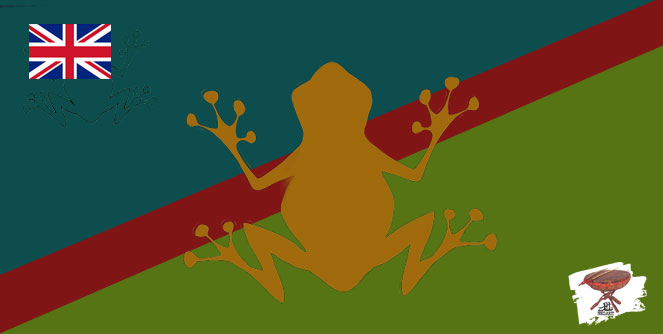Alemseghed Makes a Pilgrimage to Keren
Alemseghed Tefay is a well-known prolific writer, author, and honest historian. Lately, he performed “a pilgrimage” to my hometown of Keren and expressed his happiness that he was in Keren to speak.
Alemseghed, I am jealous. First, I am happy for you for being lucky enough to make a pilgrimage to my hometown. I have been shedding tears of nostalgia with sadness, and I hope you understand why you were happy to be in Keren again.
Such incidents invoke mixed feelings among my type of wronged Eritreans, those whose umbilical cord is buried there. I have mine buried in the house where I was born. I remember running around stark naked with other children and enjoying the raindrops. I returned home wet and shivering from the cold as if I were just baptized. I know many Eritreans living with a serious nostalgic memory of the streets and alleys of their childhood. I am sure you sympathize with us—the forcefully exiled.
That is the background to my episode of today, Negarit 268.
In one of my last episodes, I boasted about Keren; why not when all are boasting? I mentioned that we grew up consuming patriotism and love of our country mixed with the waters of Daari River. I understand why the late Alamin Abdulatif, whose songs inspired so many of the youth. It’s telling how you, as a university student in Haile Selassie’s Addis Ababa, created an excited uproar when he sang, “Keren is my hometown.” It was such empowering national songs that drove so many to join the struggle for the independence of Eritrea. Incidentally, the late Alamin is from the town of Ghindae, but I claimed him as a Kerenite long ago, with apologies to the people of Ghindae.
You said, “simply, Keren is Keren”. You can say that again, Keren id Keren! It is the custodian of religious, ethnic, and geographical harmony and peaceful coexistence. It’s an example of how pristine patriotism must be reflected.
After a long and arduous struggle, today we miss all those who fell in the struggle and were left behind, buried in all corners of Eritrea. Some are left in refugee camps and in exile, including handicapped war veterans, because, sadly, independent Eritrea could not accommodate them. So, the name Keren invokes special memories, Eritreans from other cities and villages have the same feeling.
The Youth
Indeed, the young get bored, but we must not be bored telling them the true, unadulterated history that brought us to where we are. But again, even some oblivious youths are joining us in the memory lane, in places of nostalgic agony. If things do not improve soon, there will be many who will join in the lands of our exile.
The Eritrean Diaspora was dealing with its affairs as they should until the social derelict joined in and began to deny us even the memories of our gallant combatants whom we held in high esteem—those whose bones are strewn all over the country—and still are in the many current wars.
That has been going on for the last decade or so, equipped with the old bigotry and the unfortunate Ethiopian plague that inflicted many among us. The pristine patriotism and love of country are being eroded, and the government of the day is not worried. Alemseghed, though understandably you cannot express it openly, for known reasons, I can tell you are worried about that, and I salute you. We can only hope the regime will stop its brutal governance, despite the common Tigrayit saying, “baAal amel amel eehadig we debr akanu”—a mountain cannot leave its place and behaviors do not change. It’s prudent to remember that Cancer cannot be cured with Aspirin pills, like a minor headache. A total overhaul is urgently needed.
As we know, most of our recent wars are centered around inter-ruling interests and egos. I don’t believe normal citizens have an interest in fighting with each other endlessly. It’s partisan politics and rivalry, long-established warrior culture, and long-held biases and prejudices.
People, young and old, have come through history under feudal or feudal like leaders. But still, the common citizens never ignited a conflict. In the good times, even the minor fear of the unknown was being attended to by people like Memhir Tsehaye, my elementary school physical education instructor—I have concluded that Memhir Tsehaye is better equipped to deal with such conflicts morally and ethically than the entire PFDJ edifice.
You have mentioned the sorry thinking level of many youths many times; I always been engaged in educating on the need for self-improvement for years. But why do we have so many Eritreans, particularly the young, who have not gained some basic knowledge about our history? It’s the neglect of the PFDJ that considers education a propaganda tool and a means of indoctrination.
The Ethiopian Unionist Party
Many Ethiopians had infiltrated the ranks of Eritrean politics. I would be surprised if they didn’t, because their infiltration is understandable. That is what occupiers do. But why do we have some Ethiophiles today? It’s a legacy they hold on to with tenacity.
Patriotism needs care, as Alemseghed elaborated. But since partisan patriotism is the norm in PFDJ manual, the supporters consider it their private domain. Can true patriotism be achieved by excluding half the nation and with the conviction that whoever is not within the PFDJ camp is unpatriotic and needs to surrender and be humiliated as if he is an outsider? As if he is not a stakeholder? Why didn’t the PFDJ take any steps towards achieving the real unity of citizens, not the unity of like-minded supporters only?
I wonder Just like you wonder where the disrupters come from! One doesn’t worry about where termites come from; they are always there. But is the inept government truly alert to the natural presence of termites, the lethal political type? I don’t think so. The PFDJ government is too intoxicated with power and partisan hegemony to pay attention. It was too arrogant to realize and too self-centered to consider the dangers.
In the Diaspora, such elements are doing what they do openly because they live in free societies, and as such, the good, the bad, and the ugly manifest their mettle in so many ways. But if we had them in the nineteen-fifties and sixties, like you alluded to in the case of the infiltrated workers union, why can’t we have them now? I think they are our sleeping cells; the whole world has such sicknesses. A government that cannot learn from history exposes the nation to so many risks.
You see, Alemseghed, in the struggle era, activities and organizations were ruled with iron-clad military discipline that forced anyone into silence, though there were a few oppositions that didn’t end well. But that doesn’t mean they weren’t there.
Today, we see PFDJ supporters flexing their muscles and threatening their compatriots. They also have noticeable bigoted elements among them. Screaming the “nine ethnic groups” slogan doesn’t absolve one from bigotry; they are no better. So, true patriots are squeezed between two groups of hegemonic bigots and gangs. Still being at the receiving end, one realizes their hate and its result are similar. It’s all open bigotry, racism, prejudice, and sometimes subtle arrogance. And that is what is eroding our national unity.
I feel you, Alemseghed. Sometimes one feels like he is fighting alone. That is wrong. There are many citizens of goodwill who are resolute, but we have a problem: national resources are so scattered to make a dent. Unnecessary battles weaken all. Only a resolute, dedicated, united struggle can usher in justice and freedom.
Many are afraid to cross the 1991 dateline—it’s too embarrassing for them to rewrite what has been their operational manual for ever. I am sure you are too far from that camp. No sane and fair person can deny you have broken many taboos, and you should be proud of your record; you have done remarkably well given the circumstances.
Culture
This I cannot skip because it is stuck in my throat like a sharp bone. In the Eritrean context, “Atum” formal ‘you’ is two pronged: traditional feudal and religious.
Once, someone told me about their father’s meal-eating ceremony. He said, when the father came from the outside, their mother brought a bowl of water and washed his feet and then his hands. When the food was served, the father sat alone, eating while his children held the twaf (candle) and stood there until he finished his meal. The mother stayed in front of him, pushing the food towards him and sometimes feeding him with her fingers. Finally, she brought the bowl and washed his hands. With all that ceremony, I wondered if they didn’t have servants to do all that. He said they had servants, but no one can come close or touch him except the mother. These are also mixed with religious traditions of respecting elders and husbands. I think all that nonsense should be eradicated, except respect for elders.
AS for how we address elders (not dignitaries), many cultures have the element of addressing people in the plural: the Italians have Lei and Tu, the French have Vou and Toi. For instance, the German would ask permission to address someone informally before they did: Kan wir dutsan? In Tigrayit we are supposed to be formal when addressing elders: kefo h’llekum (how are you in the plural) as opposed to kefo h’lleka (informal and singular)
There are also traditions that use “aya” when addressing elders. I grew up with that culture hearing my father address his elder brother as “ayay” without mentioning his name, and I understood it to mean “ayay Osman”, automatically and in context.
As for addressing Haile Selassie formally, that will never come out through my throat, I would chock!
Many years ago, we had breakfast in Keren restaurant in Washington, DC. it’s a famous place that serves Kerenite shaHanful breakfast (beans). We chatted and one of us kept mentioning Haile Selassie formally. That irritated me because he mentioned Ibrahim Sultan and Weldeab Weldemarian informally. A heated argument ensued, I lost my appetite and walked out.
I hold Alemseghed in very high esteem because his record and what he does, given the limitations, are impeccable and honorable. I have much respect for him. I am sorry I used his speech as a launching pad to say what was on my mind—I must, because I don’t see any official explanation of anything. Including some of those who consider themselves writers and scholars because they are embarrassingly docile and would rather be engaged in endless propaganda. The Egyptians say, “Lew Habibek Asel, matelHasush ketir.” If your friend is honey, don’t over-lick him. I hope I haven’t overlicked Alemseghed. He is an honorable person and might have blamed me if I didn’t speak out. May I get the opportunity to visit my hometown like you did. But don’t misjudge the bold face I am displaying; I am agonizing with nostalgia from the inside. I hope one day, I might see Keren again.



Awate Forum